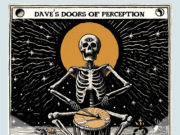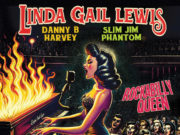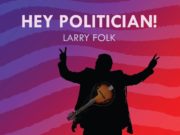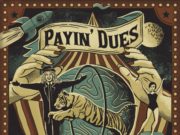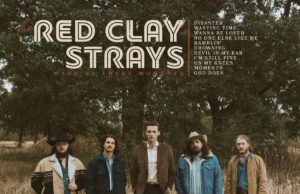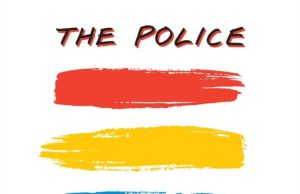This came out in 2002 – or at least that’s when I got it. Here’s what I said about it back then (with some minor editing):
“Someday even man’s best-laid plans will lie twisted and covered in rust,” Steve Earle predicts on the opening track of his darkly powerful album Jerusalem. “We’ve done all that we can but it slipped through our hands and it’s ashes to ashes and dust to dust.”
Earle is a guy who knows about bad endings. Back in the late ’80s, the everyman roots-rocker had it all: Critical acclaim, hit singles like Copperhead Road, a loyal following and seemingly limitless potential. Too bad he also had a seemingly limitless taste for drugs and a rebellious streak so wide it was practically suicidal. By the mid-’90s, after years of blowing off gigs, getting busted, biting the industry hands that fed him and going through wives like Jerry Lee Lewis, Earle’s career was in ashes.
How he slowly rose again thanks to rehab, willpower and a reawakened muse is a helluva story. But it’s not the one he’s telling here. This time, it’s America that’s heading for the big fall. And Jerusalem, his ninth solo studio offering and his most pointedly political record to date, is his attempt to sound the alarm before it’s too late.
Set against a multi-textured backdrop of Americana styles and hybrids — swaggering Rolling Stones roots-rock, strummy acoustic folk, gritty southern boogie, easy backporch country, raunchy Tex-Mex, rough Appalachian bluegrass and even home-recorded lo-fi electro-rock — Earle lays out his argument like a prosecuting attorney, gracefully linking together a series of songs into a rough narrative arc that turns this document into a unified piece of work despite its eclectic musicality.
After the Nostradamus-like predictions of Ashes To Ashes, Steve gets down to cases, laying down some darkly funky grooves as he catalogues the sins and betrayals of Amerika V.6.0: Double-talking politicians, unchecked corporate greed, global warming, a health-care system that puts profits before patients, a growing gulf between the rich and poor, draconian drug laws and (perhaps worst of all) a populace that’s been lulled into keeping its head in the sand ever since the idealistic dream of the ’60s got gunned down in Dallas, Memphis and Los Angeles. “Open up your eyes and you will wake up screaming,” he challenges on the paranoid Conspiracy Theory, “and you’ll realize that it’s all come true.”
Earle spends the next few tracks showing us the results of the rot. The rollicking Sir Douglas Quintet punch of What’s A Simple Man To Do tells the tale of a lonely Mexican man lost in a U.S. jail after being busted for drug-smuggling; the stark banjo bluegrass of The Truth takes us inside the cell of a more seasoned inmate who knows the walls that keep him inside also imprison the rest of us. I Remember You (a duet with Emmylou Harris) is a poignant reunion between two long-lost lovers — one of whom could easily be the jailbird above, while the other could be the star of Go Amanda, a Little Feat-ish boogie about a gal taking off on her rotten lover.
Last, but not least, of course, there’s John Walker’s Blues, Earle’s controversial and inspired attempt to get inside the head of American-born Taliban soldier John Lindh. His theory: That Lindh went searching for something to believe in because the shallow, morally bankrupt culture of his homeland didn’t satisfy him. “I’m just an American boy, raised on MTV, and I’ve seen all the kids in the soda pop bands, but none of them look like me,” rasps Earle over a funereal two-step. After going off to “fight the Jihad,” only to get “dragged back with my head in a sack,” the character remains unrepentant. “(My dad) don’t understand that sometimes a man’s gotta fight for what he believes.”
Laced with Islamic prayers, praises to Allah and references to America as “the land of the infidel,” John Walker’s Blues is one of Earle’s most unforgettable songs in years. And one which restates his thesis in shocking terms: America’s poisoned society, he tells us, is unwittingly turning its own children against itself.
Yet somehow, against all odds, Earle remains ultimately optimistic. America may be headed into the Shadowland on the chugging roots-rocker that is the album’s penultimate cut, but all that darkness just means dawn is approaching. He gives us a glimpse into the light on the closing title track Jerusalem, an open-hearted statement of belief that good will eventually overpower evil. “Maybe I’m only dreaming, maybe I’m just a fool / But I don’t remember learning how to hate in Sunday school,” Steve yearns over a stummy, Dylanesque folk-rock track. “I believe there’ll come a day when the lion and the lamb will lie down in peace together down in Jerusalem.”
Who knows, maybe he’s right. After all, Earle is a guy who knows a thing or two about new beginnings too.


